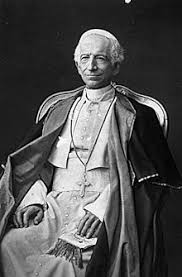While we are about the project of reforming the civil police force, we are allowing the Thought Police to run amok. The Thinkpol are slowly rendering certain ideas unutterable simply because they do not conform to the Ochlocratic Orthodoxy. Not only do they have ritual humiliation at hand, they have co-opted corporations so that private views now have become fireable offenses. The mob silences dissenters by threatening livelihood and so most people simply conform. Free speech has come under attack in America in ways that would make even Woodrow Wilson blush. Like the previously discussed freedom of conscience, freedom of speech also needs defending. And like freedom of conscience, only Catholics who have a proper understanding of it, are in a position to lead the charge.
On the one hand, it is not wholly unexpected that free speech in our country has taken such a sharp left turn into a ditch. The Founders had an absolute faith in the power of the popular mind. Individuals might err, but the entire society could not. Free speech, coupled with democracy, serves as a recipe for finding the truth. All debate, they thought, would eventually lead to the truth. All ideas, even bad ones, then must be protected in order to keep the debate moving. In Gertz vs Welch, the Supreme Court declared that “”Under the First Amendment there is no such thing as a false idea … (it) requires that we protect some falsehood in order to protect speech that matters.”
Captivity to the Mob
Any freedom that is directly linked to democracy is always susceptible to becoming captive to the mob. If debate over an issue ceases then it is assumed that the truth has been reached. Now those who do not accept the orthodoxy become a threat to the well-being of society and need to be shut up. Thus we have things such as “hate speech” becoming punishable offenses.
A vicious circle is formed so that truth as a democratic matter always ends in an assault upon true liberty including free speech. It is as if they must saw off the limb they are sitting on. Liberty can only be connected to purpose and the purpose of speech is to utter truth. Therefore, there is such thing as liberty to speak falsehood. Freedom of speech is not unlimited but instead is not then a justification to say anything.
Truth is not democratic but is strictly governed by the dictatorship of reality. Truth, that is, the accordance of mind with reality, is necessary for liberty. Summarizing, Leo XIII says that the right to free speech “is a moral power which – as We have before said and must again and again repeat – it is absurd to suppose that nature has accorded indifferently to truth and falsehood, to justice and injustice. Men have a right freely and prudently to propagate throughout the State what things soever are true and honorable, so that as many as possible may possess them; but lying opinions, than which no mental plague is greater, and vices which corrupt the heart and moral life should be diligently repressed by public authority, lest they insidiously work the ruin of the State” (Libertas, 23).

This abuse of free speech eventually leads to its destruction as ironic as that seems. The problem is that there is no set of public truths that are immune to criticism, no intellectual foundation upon which debate may be carried out. Leaving everything open to debate actually closes it, a situation that Leo XIII anticipated when he said “The excesses of an unbridled intellect, which unfailingly end in the oppression of the untutored multitude, are no less rightly controlled by the authority of the law than are the injuries inflicted by violence upon the weak. And this all the more surely, because by far the greater part of the community is either absolutely unable, or able only with great difficulty, to escape from illusions and deceitful subtleties, especially such as flatter the passions” (ibid).
Americanism and the Fallout
Eventually, “nothing will remain sacred and inviolate; even the highest and truest mandates of natures, justly held to be the common and noblest heritage of the human race, will not be spared. Thus, truth being gradually obscured by darkness, pernicious and manifold error, as too often happens, will easily prevail. Thus, too, license will gain what liberty loses; for liberty will ever be more free and secure in proportion as license is kept in fuller restraint” (ibid). This is exactly where we find ourselves.
Because many prelates in the Church in the United States are infected with the Americanist heresy, they often confuse the authentic Catholic (i.e. true) understanding of free speech with the American model. The former leads to peace and justice while the latter leads to further division. One prelate recently said that our religious principles demand that we “defend the rights of all people even those with whom we might disagree.” Such a statement is misleading at best. What we are disagreeing about absolutely matters. Some topics are still open to debate, or as Leo XIII said, “In regard, however, to all matter of opinion which God leaves to man’s free discussion, full liberty of thought and of speech is naturally within the right of everyone; for such liberty never leads men to suppress the truth, but often to discover it and make it known” (ibid). Others, such as the right to religious liberty and the immorality of racism God has not “left to man’s free discussion”. Both sins against God cry out for justice. Therefore, it is neither “baffling nor reprehensible” that a Catholic institution, faced with playing a role in rectifying either, would seize the opportunity; unless, that is, you think the Thinkpol, rather than God, has closed the discussion.